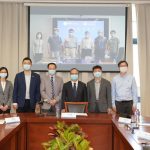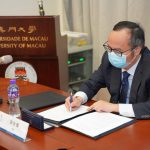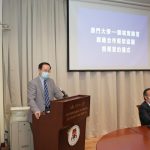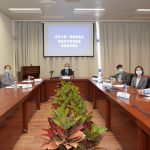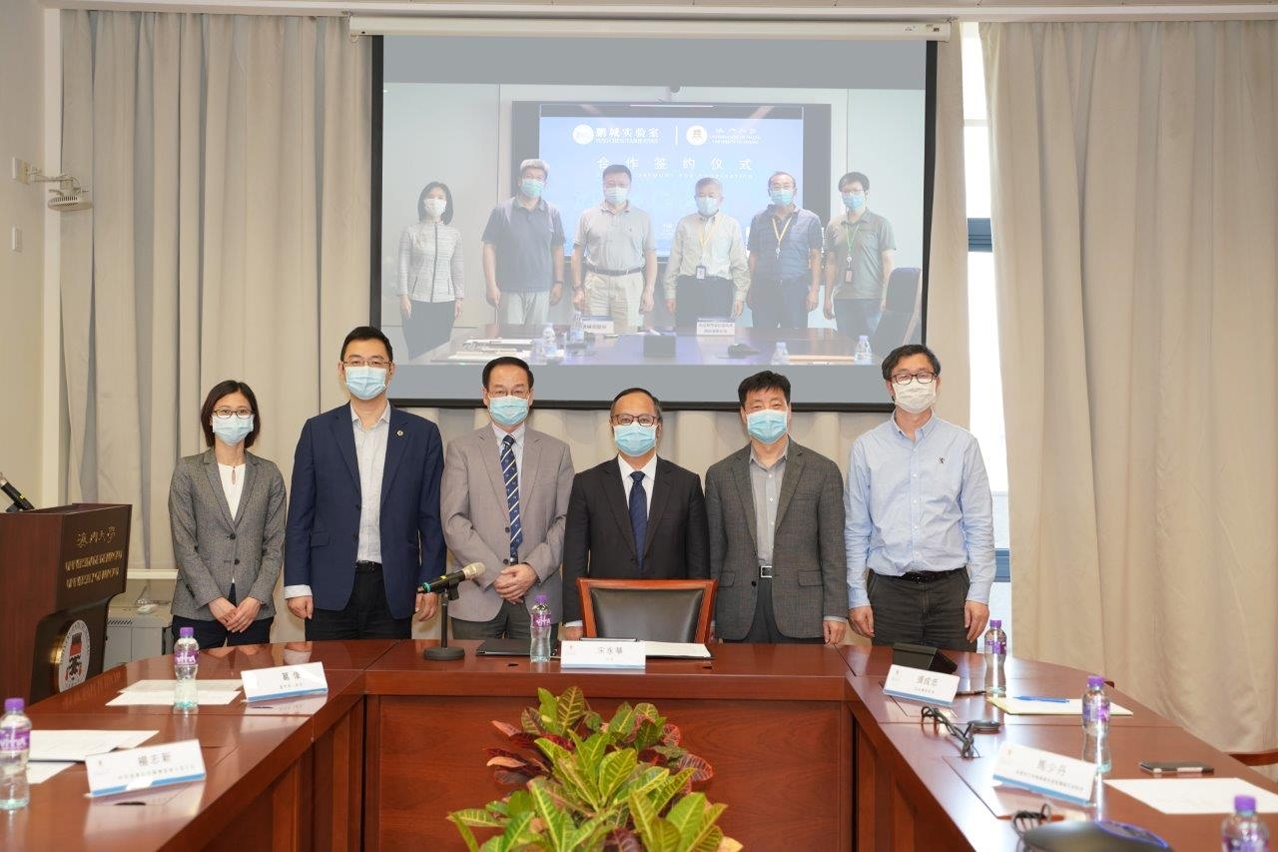 UM and Peng Cheng Laboratory initiate collaboration in AI, network and communication
UM and Peng Cheng Laboratory initiate collaboration in AI, network and communication
The University of Macau (UM) and Peng Cheng Laboratory in Guangdong province recently signed a strategic collaboration agreement via video conferencing, marking the beginning of a long-term strategic collaborative relationship that will combine the strengths of both institutions. According to the agreement, both parties will conduct collaborative research in artificial intelligence (AI), network and communication, cyberspace security, and robotics. The partnership also reflects the determination of both parties to carry out cross-regional cooperation in scientific research during the epidemic.
At the ceremony, Yonghua Song, rector of UM, and Gao Wen, director of Peng Cheng Laboratory, signed a strategic collaboration framework agreement on behalf of UM and Peng Cheng Laboratory, respectively. Peng Cheng Laboratory is a laboratory approved by the government of Guangdong province and established by the government of Shenzhen city. Dedicated to serving the needs and strategic layout of the country and Guangdong province, the lab conducts regional and multi-disciplinary, interdisciplinary, and large-scale collaborative basic research and applied basic research projects. It mainly focuses on three research fields, namely AI, network and communication, and cyberspace security. The lab has initiated eight key research projects and will gradually develop related scientific research platforms. The lab also collaborates with national key laboratories in related fields, with the aim of maximising their strengths. The lab strives to take the lead in China’s science and technology development and become a force behind the country’s strategic development in this field.
According to Ge Wei, vice rector (research) of UM, under this agreement, UM and Peng Cheng Lab will jointly carry out major scientific research projects to meet the needs of national and social development; they will also study basic, forward-looking, and strategic theoretical issues, as well as develop core technologies. Both parties will use their strengths to enhance communication and mutual visits related to specific projects, strengthen exchange of researchers, promote the commercialisation of both institutions’ research results, enhance the competitiveness of China’s scientific and technological industry, as well as research achievements in AI, network and communication, cyberspace security and robotics.
According to Zou Peng, executive deputy director of Peng Cheng Laboratory, the lab is committed to carrying out strategic cooperation and implementing the concept of co-construction since its establishment two years ago. Currently, there are more than 150 strategic cooperation units in the lab, which jointly carry out major scientific research projects and develop scientific research platforms.
With the rapid development of science and technology, Macao is also vigorously promoting the development of science and technology to establish a new development model of ‘Building a better Macao through science and education’. With the strong support of the central government, Macao SAR government, and people from all sectors of society, UM has taken as its responsibility to support the government’s effort to build a better Macao through science and education. The university carries out interdisciplinary collaborations, focuses on its strength areas, strengthens collaboration in scientific research and the commercialisation of research results, and actively supports the development of Macao and the Guangdong-Hong Kong-Macao Greater Bay Area. In recent years, UM has made rapid progress in scientific and technological innovation. It is now ranked among the top 1 per cent in the Essential Science Indicators (ESI) database in seven disciplines. Over the years, it has produced a large number of outstanding graduates for Macao and the country. The university has also established a ‘3 + 3 + 3’ strategic layout for scientific research and vigorously promotes interdisciplinary research. For instance, the university’s State Key Laboratory of Internet of Things for Smart City and Joint Laboratory of Artificial Intelligence and Robotics conduct cutting-edge research in fields such as artificial intelligence, network and communication, cyberspace security, and robotics, and have achieved remarkable results.
UM representatives attending the ceremony included Xu Chengzhong, dean of the Faculty of Science and Technology; Yang Zhixin, director of the Research Services and Knowledge Transfer Office; as well as professors Gong Zhiguo and Ma Shaodan from the State Key Laboratory of Internet of Things for Smart City. Representatives of Peng Cheng Laboratory included Chen Changwen, deputy director of the lab; Wang Lixin, head of the Office of General Affairs; Gary Li, director of the Artificial Intelligence Research Centre; Qui Jingfei, deputy director of the Artificial Intelligence Research Centre; Chen Yupeng, executive assistant of the Artificial Intelligence Research Centre; and Kou Hongning from the Office of International Affairs.


